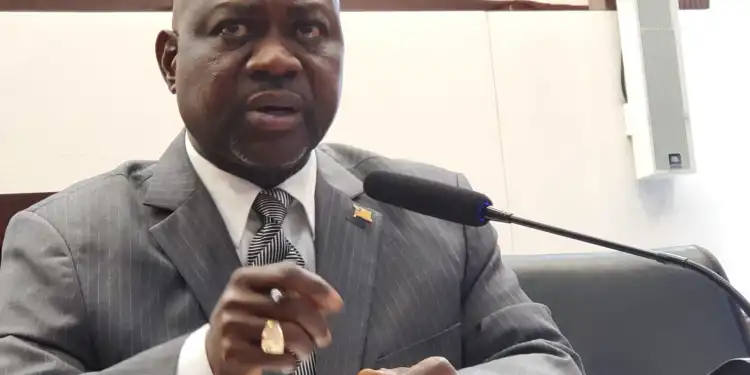
Boakai Kanneh, the Associate Justice-designate of Liberia’s Supreme Court, delivered a firm warning against political interference in the judiciary during his confirmation hearing before the Senate Committee on Judiciary, Human Rights, Claims and Petitions on Tuesday.
Kanneh emphasized the critical role the judiciary plays in maintaining national peace and stability, insisting that it must operate free from pressure or manipulation by the executive or legislative branches.
“The independence of the Judiciary should be a venture of the government. You in the Legislature and those in the Executive should refrain from interfering with the Judiciary. To maintain the independence of the Judiciary, there should be no interference,” he declared.
Highlighting the necessity for impartiality, Kanneh urged that political cases be decided strictly according to law without bias or favoritism. He also underscored the importance of judicial integrity and honesty in dispensing justice, calling for a united effort from all government branches to advance Liberia.
A key element of Kanneh’s address was his call for constitutional reforms, specifically proposing amendments to Articles 91 and 92, which govern the referendum process for constitutional changes.
Describing the current procedure as overly complicated and confusing to voters, he suggested a comprehensive rewrite of the Liberian Constitution, facilitated by a committee including the Law Reform and Governance Commissions.
“I am proposing that we amend the Constitution—Articles 91 and 92—to provide for the rewriting of the Liberian Constitution.
And then, you will have a single proposition that is taken to the Liberian people. If they approve that, then a committee is constituted… to rewrite the Constitution,” Kanneh explained. He emphasized that this would not establish a Third Republic, and the current Constitution would remain until the new one is finalized.
Kanneh, though yet to serve as a judge, cited his legal expertise and integrity as qualifications for the Supreme Court role to which President Joseph Nyuma Boakai nominated him.
However, concerns linger over persistent interference by Liberia’s executive and legislature in judicial affairs—a trend that risks undermining the separation of powers.
The Legislature has occasionally passed restrictive laws curbing court authority, while budget controls hamper judicial effectiveness. Moreover, the Executive’s involvement in legal proceedings has raised questions of potential conflicts, with allegations of attempted influence over Supreme Court decisions.
As Kanneh awaits final confirmation, his call for judicial independence and constitutional renewal offers a crucial roadmap for strengthening Liberia’s justice system and governance.



